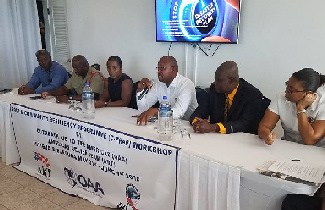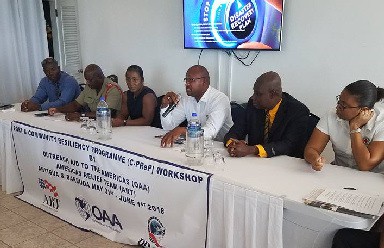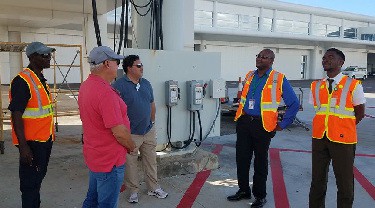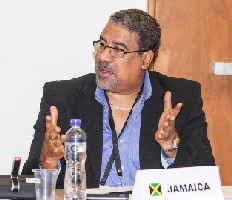Key Recommendations Emerge from Resilience Planning Workshops in OECS Countries

MIAMI – Planning ahead for nothing less than a category five (5) hurricane; improved and more timely communication amongst stakeholders and putting in place arrangements to take better care of the families of essential workers during an emergency are among the key recommendations emerging from resilience planning workshops held last week in Antigua and Barbuda, St. Lucia and the Commonwealth of Dominica.
The Community-Ports Resilience Program (C-PReP) workshops, put on by the Miami headquartered Americas Relief Team (ART) brought together representatives of government ministries and agencies; airlines and ground handlers; shipping lines; ports and airports, fuel supply and utility companies and non-government organizations such as the Red Cross in discussions and table top exercises aimed at identifying gaps in resilience planning in the three OECS countries.
While the main focus was on resilience planning for hurricanes, the workshops also focused attention on planning for emergencies in the event of earthquakes, volcanic eruptions, tsunamis, terrorist attacks, communicable diseases, and aircraft and ship accidents.
Resilience Planning Workshops Presenters
Presenters at the Resilience Planning Workshops included Nelson Mejias of Miami International Airport (MIA); retired Capt. Ricardo Garcia of Miami Dade County and the Office of Foreign Disaster Assistance (OFDA); Maricarmen Estrada, Program Director, Outreach Aid to the Americas (OAA) and Wesley Kirton, Director, CARICOM Outreach at OAA/ART. Mr. Chibale Wills of the United States Agency for International Development (USAID) also addressed the opening sessions of each workshop.

Reporting on the success of the Resilience Planning Workshops Kirton said that the recommendations emerging from the workshops identify specific actions which should be taken under various circumstances.
For instance, Kirton explained “it was recommended that in the event of a potential hurricane essential workers should be sent home several hours in advance of the time the hurricane is projected to make landfall so as to safeguard their families and return to their essential positions to fulfil their responsibilities in a timely fashion. “
“It was also recommended that these workers, where the circumstances warrant should be granted salary advances to purchase food and other supplies that would cover their immediate families for a period of time,” Kirton said.
He also identified a recommendation that stakeholders include in their standard operating procedures the sharing of information with the media, including social media on a timely basis so that the public could receive accurate information upon which to act. “An example of the importance of this is avoiding airline passengers turning up to airports that have been closed thereby posing problems for the airports since they may not have accommodation once they check out of hotels or travel long distances from their homes.”
Another key recommendation is for community responders to be trained in basic first aid. “Many of the airports are close to the sea and in the event of a plane or ship accident a water rescue may be necessary. First responders may well be area fisherfolk with their small boats and it would be very helpful if they are trained in basic first aid. The Red Cross was identified as the organization that could best provide this training,” Kirton said.

There was also the recommendation that individuals, organizations and political parties refrain from using disaster responses “as a tool for trying to score cheap political points, often in the process creating doubt and suspicion among donors and others who could contribute to resilience planning and disaster preparedness and relief.
Upgrading building codes and measures for enforcing them were also identified with recommendations that banks granting mortgages and insurance and re-insurance companies providing insurance ensure that standards are met.
The Resilience Planning Workshops were sponsored by the US Caribbean Strong Relief Fund at the Miami Foundation, Miami International Airport (MIA), Miami Dade County, FedEx and American Airlines. The workshops were executed by the Americas Relief Team (ART), an initiative of Outreach Aid to the Americas (OAA).





